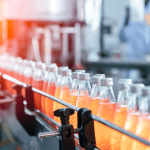The beverage manufacturing industry in Malaysia has seen significant growth in recent years, contributing to the country’s economic development. However, this growth has also brought about an increased focus on occupational health and safety. Enhancing Health, Safety, and Environment (HSE) awareness among Malaysian workers in the beverage manufacturing industry is crucial to ensuring a safe working environment and protecting employees’ well-being.
HSE awareness refers to the understanding and knowledge of workplace hazards, preventive measures, and safe practices. It plays a vital role in preventing accidents, occupational diseases, and other health-related issues. By prioritizing HSE awareness, beverage manufacturing companies can create a culture of safety and foster a proactive approach towards workplace safety.
In the beverage manufacturing industry, workers are exposed to various hazards, including harmful substances, physical strain, and potential accidents. Therefore, implementing workplace safety measures becomes paramount to safeguarding the health and well-being of employees. Safety measures can include proper training programs, the use of personal protective equipment (PPE), and the implementation of regulatory compliance.
A safe working environment not only ensures the well-being of employees but also contributes to increased productivity, customer satisfaction, and organizational gain. By creating an environment that values and prioritizes HSE awareness, beverage manufacturing companies can foster a culture of safety and prevent accidents and injuries.
In the following sections, we will delve deeper into the role of consultants in implementing safety measures, the benefits of ISO 45001 in enhancing workplace safety, breakthrough inventions that are enhancing workplace safety, and practical steps for companies to enhance HSE awareness in their workplaces.
Role of Consultants in Implementing Safety Measures
Expert HSE consultant plays a crucial role in enhancing workplace safety in the beverage manufacturing industry. Their expertise and knowledge in assessing risks, developing safety policies, and conducting training programs are instrumental in creating a safe and secure working environment for Malaysian workers.
Risk Assessment and Hazard Identification
One of the primary responsibilities of consultants is to assess the risks present in beverage manufacturing facilities. They thoroughly analyze the production processes, machinery, and working conditions to identify potential hazards that may pose risks to workers’ safety. Through comprehensive risk assessments, consultants can pinpoint areas that require immediate attention and develop tailored solutions to mitigate risks effectively.
Development of Safety Policies and Procedures
Consultants collaborate with beverage manufacturing companies to develop comprehensive safety policies and procedures. These policies outline the necessary steps and precautions that all employees must follow to ensure their own safety and the safety of others. Consultants consider the specific needs and challenges of each company, customizing safety protocols to address their unique operational requirements.
Training and Education Programs
Consultants design and implement training and education programs that equip Malaysian workers with the necessary knowledge and skills to maintain a safe working environment. These programs focus on topics such as proper handling of machinery, correct usage of personal protective equipment (PPE), and emergency response procedures. By providing employees with the required training, consultants empower them to identify potential risks and take immediate corrective actions.
Ongoing Safety Audits and Inspections
To ensure the sustained effectiveness of safety measures, consultants conduct regular audits and inspections of the beverage manufacturing facilities. These audits help identify any lapses or areas where safety protocols are not adequately implemented. By continuously monitoring the compliance with safety procedures, consultants can promptly address any issues and make necessary adjustments to enhance workplace safety.
Continuous Improvement and Regulatory Compliance
Consultants also keep beverage manufacturing companies updated with the latest safety regulations and standards. They help organizations stay in compliance with legal requirements and industry best practices. By ensuring regulatory compliance, consultants contribute to the overall improvement of the company’s safety performance and minimize the risk of accidents and injuries.
Benefits of ISO 45001 in Enhancing Workplace Safety
ISO 45001 is an internationally recognized standard for occupational health and safety management systems. Implementing this standard can bring numerous benefits to the beverage manufacturing industry, improving employee morale, reducing accidents, and ensuring compliance with safety regulations.
Improving Employee Morale
ISO 45001 emphasizes the importance of employee engagement and participation in creating a safe working environment. By involving employees in the process of identifying hazards and developing safety procedures, it promotes a culture of safety and empowers workers to take ownership of their own safety. This leads to increased job satisfaction and morale among employees, as they feel valued and protected.
Reducing Accidents and Injuries
One of the primary goals of ISO 45001 is to prevent workplace accidents and injuries. The standard provides a systematic approach to hazard identification, risk assessment, and control measures. By implementing these proactive safety measures, beverage manufacturing companies can significantly reduce the occurrence of accidents and injuries. This not only improves the well-being of employees but also reduces downtime, medical expenses, and potential legal liabilities.
Ensuring Compliance
Compliance with safety regulations is essential for beverage manufacturing companies. ISO 45001 helps organizations establish robust processes and procedures that ensure compliance with local and international safety standards. By aligning their operations with ISO 45001 requirements, companies can demonstrate their commitment to employee safety and meet regulatory obligations. This leads to enhanced trust from stakeholders, including customers, employees, and regulatory bodies.
Continual Improvement
ISO 45001 promotes a culture of continual improvement in workplace safety. The standard requires organizations to regularly review and update their safety management systems, ensuring that they are effective and up to date. By continually monitoring and evaluating safety performance, beverage manufacturing companies can identify areas for improvement and implement corrective actions. This proactive approach to safety not only minimizes risks but also drives organizational growth and long-term success.
Breakthrough Inventions Enhancing Workplace Safety
In the constantly evolving landscape of workplace safety, the beverage manufacturing industry continues to witness breakthrough inventions and technologies that enhance the safety of Malaysian workers. These innovative solutions not only mitigate risks but also foster a culture of safety and well-being. Let’s delve into some of the notable breakthrough inventions that have revolutionized workplace safety for Malaysian workers in the beverage manufacturing industry.
Robotic Exoskeletons: Combating Physical Strain
One remarkable innovation in workplace safety is the use of robotic exoskeletons. These wearable devices are designed to alleviate physical strain and reduce the risk of musculoskeletal injuries in workers performing strenuous tasks. By providing additional support and assistance, robotic exoskeletons enable workers to carry out their tasks with reduced physical effort and increased comfort. They can help prevent injuries such as strains, sprains, and fatigue, allowing workers to perform their duties more efficiently and with reduced risk.
Smart Personal Protective Equipment (PPE): Advancements in Safety Gear
Traditional personal protective equipment is being revolutionized by the integration of smart technologies. Smart PPE incorporates sensors, communication devices, and data analysis capabilities to enhance safety and improve incident response. For example, smart helmets equipped with built-in sensors can detect hazardous gases or notify workers of imminent dangers. Similarly, smart gloves can assess hand movements and provide real-time feedback on ergonomics, reducing the risk of repetitive strain injuries.
Enhanced Hazard Monitoring Systems: Early Detection and Prevention
Advanced hazard monitoring systems empower beverage manufacturing facilities to identify potential hazards and mitigate risks more effectively. These systems utilize sensor networks, artificial intelligence, and real-time data analysis to continuously monitor the working environment. By promptly detecting hazardous conditions, such as high noise levels or chemical leaks, these systems enable swift interventions and prevent accidents before they occur. Moreover, the data collected can be analyzed to identify trends, enhance risk assessment, and improve safety protocols.
Virtual Reality Training: Immersive Learning for Safety Skills
Virtual reality (VR) training has emerged as a powerful tool for enhancing safety skills and awareness among workers. By immersing trainees in realistic work scenarios, VR simulations provide a hands-on learning experience without exposing workers to actual risks. For instance, workers can undergo virtual training in handling hazardous substances or operating machinery, allowing them to practice safety procedures and develop critical skills in a controlled environment. VR training enhances workers’ understanding of safety protocols, reduces errors, and ensures they are well-prepared to handle potential hazards.
Implementing Enhancements in Your Workplace
Ensuring workplace safety and enhancing HSE (Health, Safety, and Environment) awareness is crucial for beverage manufacturing companies. By implementing effective safety measures, these companies can protect their workers and create a conducive working environment. Here are practical steps and advice to enhance HSE awareness and implement safety measures in your workplace:
Conduct a thorough risk assessment
– Identify potential hazards in your workplace, such as harmful substances, occupational diseases, and safety risks related to the beverage manufacturing process.
– Assess the impact of these hazards on workers’ health and safety.
– Implement measures to eliminate or reduce these risks, such as implementing proper ventilation systems, providing personal protective equipment (PPE), and establishing safe work procedures.
Develop comprehensive safety policies
– Develop clear and concise safety policies that outline the expectations and responsibilities of all employees regarding workplace safety.
– Ensure that these policies comply with regulatory requirements and align with industry best practices.
– Regularly review and update these policies to adapt to new occupational health and safety regulations and standards.
Provide thorough training and education programs
– Conduct regular training sessions to educate employees about workplace safety procedures, hazard identification, and emergency response protocols.
– Train employees on how to correctly use PPE and safety equipment.
– Promote a culture of safety by encouraging open communication and reporting of potential hazards.
Foster a safe and healthy working environment
– Regularly inspect and maintain equipment to ensure it is in good working condition.
– Encourage employees to proactively report any safety concerns or near-miss incidents.
– Implement safety communication channels, such as safety suggestion boxes or regular safety meetings, to involve employees in the continuous improvement of workplace safety.
Monitor and evaluate safety performance
– Establish key performance indicators (KPIs) to measure safety performance, such as the number of incidents, near-miss reports, and employee compliance with safety procedures.
– Regularly review and analyze safety data to identify trends, areas of improvement, and potential risks.
– Use this information to implement proactive measures and interventions to prevent accidents and injuries.
By following these practical steps, beverage manufacturing companies can enhance HSE awareness and create a safer working environment for their employees.
Conclusion
Enhancing Health, Safety, and Environment (HSE) awareness among Malaysian workers in the beverage manufacturing industry is of utmost importance. By prioritizing workplace safety measures, companies can ensure the well-being of their employees and create a productive work environment.
Consultants play a crucial role in implementing safety measures within beverage manufacturing companies. They assist in assessing risks, developing safety policies, and conducting training programs that empower workers to prioritize their own safety. Consultants bring expertise and guidance to identify potential hazards, perform risk assessments, and enhance workplace communication.
One key strategy for enhancing workplace safety in the beverage manufacturing industry is the implementation of ISO 45001. This international standard provides a framework for organizations to manage occupational health and safety risks effectively. By adopting ISO 45001, companies can improve employee morale, reduce accidents and injuries, and ensure compliance with safety regulations.
Moreover, breakthrough inventions and technologies are revolutionizing workplace safety for Malaysian workers in beverage manufacturing. Robotic exoskeletons and smart personal protective equipment are innovative solutions that enhance worker safety and mitigate potential hazards.
By focusing on enhancing HSE awareness, leveraging the expertise of consultants, implementing ISO 45001, and embracing breakthrough inventions, beverage manufacturing companies can create a safer and more productive work environment for their employees.











